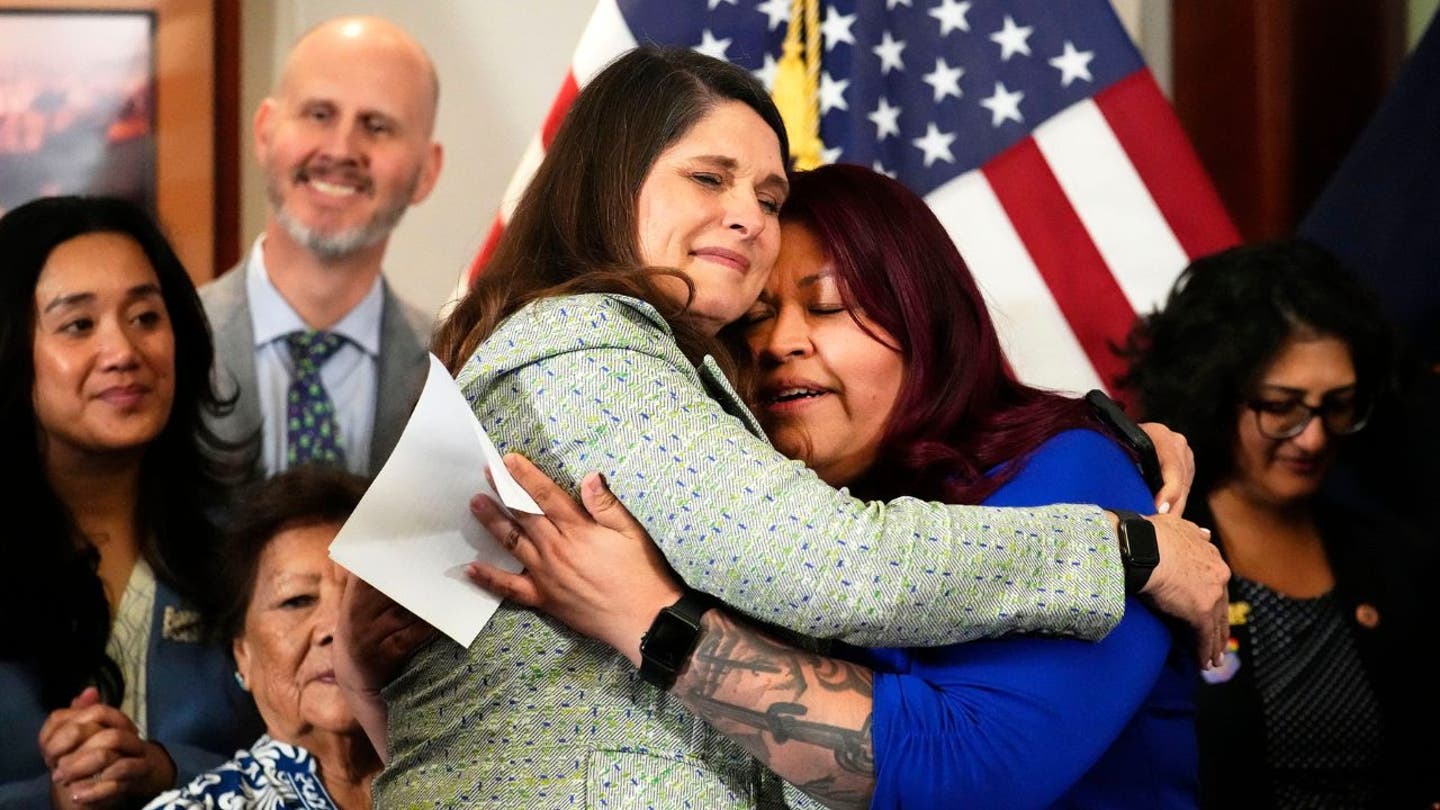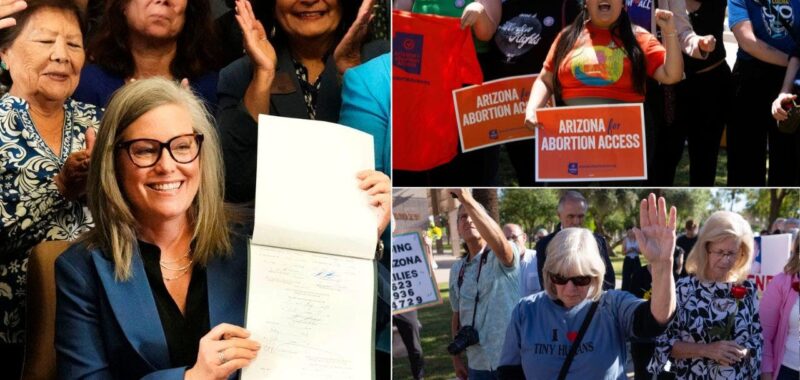Arizona’s Civil War-era ban on nearly all abortions is officially being repealed on Saturday.
The long-dormant 1864 law, which predated Arizona’s statehood, had no exceptions for rape and incest, only for the life of the mother.
The 160-year-old law went into effect after the repeal of Roe vs. Wade in 2022 but faced court challenges which prevented it from being enforced.
WHAT TO KNOW ABOUT THE ARIZONA SUPREME COURT’S REINSTATEMENT OF AN 1864 NEAR-TOTAL ABORTION BAN

Arizona Gov. Katie Hobbs signs a bill repealing the state’s near total abortion ban that dates to 1864 during a news conference at the Governor’s Office on May 2, 2024. (Rob Schumacher/The Republic/USA TODAY NETWORK)
The ban was held up by the Arizona Supreme Court in April, throwing out an earlier lower-court decision that concluded doctors couldn’t be charged for performing abortions in the first 15 weeks of pregnancy.
But the decision sparked backlash in the battleground Grand Canyon State, with Democratic Arizona Gov. Katie Hobbs calling on the state legislature to repeal the ban.
Republicans hold a narrow majority in both chambers, but House Democrats were then able to garner the support of three Republicans to pass the repeal legislation in April following two previous attempts, sending the measure to the Senate for consideration. Two GOP senators joined with Democrats a week later to grant final approval and then Hobbs signed the bill in May, declaring it was just the beginning of a fight to protect reproductive health care in Arizona.
“I will continue doing everything in my power to protect reproductive freedoms, because I trust women to make the decisions that are best for them, and know politicians do not belong in the doctor’s office,” Hobbs said in a statement.

Pro-life advocates demonstrate prior to an Arizona House of Representatives session at the Arizona State Capitol on April 17, 2024, in Phoenix, Arizona. (Rebecca Noble/Getty Images)
Arizona House Speaker Ben Toma, a Republican, said at the time that he was “deeply disappointed” by the bill’s passing.
“We should not have rushed this bill through the legislative process,” he said in a statement shared with Fox News Digital. The pre-Roe law has been on the books for decades and was readopted in 1977 by Democrats and Republicans in the State Legislature and signed by Democrat Gov. Raul Castro.
ARIZONA HOUSE LAWMAKERS PASS BILL TO REPEAL 1864 ABORTION BAN
“It would have been prudent and responsible to allow the courts to decide the constitutionality of the pre-Roe law. Instead, we are rushing to judgment for reasons I simply cannot understand.”
The state’s internal tussle over the issue was thrust into the national spotlight in March when Arizona state Sen. Eva Burch announced on the state Senate floor that she planned to have an abortion after learning that her pregnancy was not viable.
Arizona law now allows abortions until 15 weeks. After that, there is an exception to save the life of the mother, but missing are exceptions for cases of rape or incest after the 15-week mark.
The state requires those seeking an abortion prior to the 15-week mark to have an ultrasound at least 24 hours before the procedure and to be given the opportunity to view it. Minors must have either parental consent or authorization from a state judge, except in cases of incest or when their life is at risk.
CLICK HERE TO GET THE FOX NEWS APP

Arizona state Rep. Stephanie Stahl Hamilton hugs state Sen. Anna Hernandez (right) after Arizona Gov. Katie Hobbs signed a bill repealing the state’s near total abortion ban that dates to 1864 during a news conference at the Governor’s Office on May 2, 2024. (Rob Schumacher/The Republic/USA TODAY NETWORK)
Voters will decide on whether to add the right to abortion to the state constitution when they have their say on Proposition 139 in the general election.
The measure secured a spot on the ballot after the pro-abortion group Arizona for Abortion Access, secured nearly 578,000 signatures, well over the 383,923 required from registered voters.
If voters approve the measure, abortions would be allowed until fetal viability — the point at which a fetus can survive outside the womb, typically around 24 weeks. It also would allow abortions after that time in cases where the mother’s physical or mental health is in jeopardy.
The Associated Press contributed to this report.

